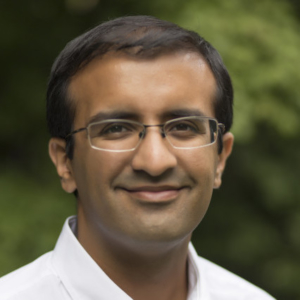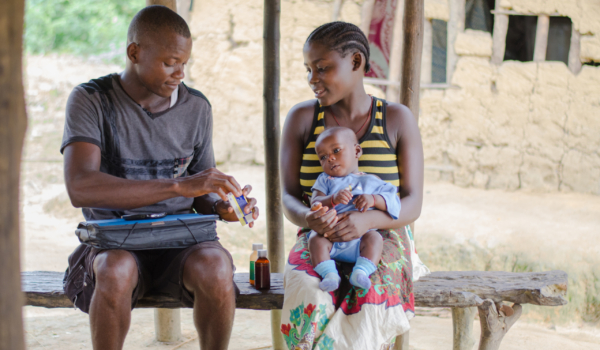By Dr. Raj Panjabi, Last Mile Health CEO
All people deserve access to healthcare, no matter where they live. In the 21st century this shouldn’t be a radical idea.
In the 1970s, my parents emigrated from India to Liberia, where I was lucky to be born. But when I was only 9 years old, a fourteen-year civil war erupted. Rebels launched a war in the countryside, and eventually surrounded our hometown. Our school shut down, and when the international airport was captured, people were forced to flee and leave everything behind. We were rushed to a landing strip in the center of town, and there, on the tarmac, we were split into two lines. In one line, I stood with my mother and sister. We were stuffed into the cargo hatch of a rescue plane. But, in another much longer line, stood hundreds of Liberian mothers, with children strapped to their backs. As our plane lifted off, I watched soldiers restrain them. They were not allowed to flee.
We were the lucky ones. We were resettled in America and I was able to follow my dream of attending medical school. But I never forgot where I came from. Liberia had a lit a torch in my heart that never stopped burning. So in 2005, I returned to Liberia as a medical student, to help serve the people I had left behind.
What I found was utter destruction. To serve the remaining 4 million people, Liberia was left with just 51 doctors. (For a rough equivalent, think about 10 doctors treating the entire city of San Francisco.) If you fell sick in a city where the few remaining doctors worked, you would stand a chance. But if you fell sick in remote villages hundreds of miles away from the nearest clinic, you would too often die anonymously.
We know this isn’t just the story of rural people in Liberia. Around the world, 1 billion people lack physical access to medical care because they live in remote, last mile villages—too far from the nearest clinic. Indeed, even in the 21st century, illness is universal, but access to care is not.
We created Last Mile Health in 2007 to change that. Launched with only $6,000 in donations out of the closet of a bombed out building in rural Liberia, Last Mile Health was founded by Liberian civil war survivors and American health workers to saves lives in the world’s most remote villages.
Since then, we’ve grown. We’ve deployed hundreds of community health professionals, bringing primary care–from HIV/AIDS and hypertension treatment for adults to community-based treatment for malaria and pneumonia and vaccines for children to skilled labor and delivery for pregnant mothers–to hundreds of isolated, remote villages for the first time. These are villages that are up to a several days walk away from the nearest clinic, have no roads, and have otherwise been cut-off from modern services.
Together, we now have the opportunity to transform the way an entire nation brings health care to all people—no matter where they live. This spring, the Liberia Government announced a revolutionary Health Workforce Program that once fully financed, will scale professional community health workers nationally: bringing nearly 5,000 community health professionals to each and every corner of Liberia. That would be historic; not just because it would help stop the next epidemic, but also because it would bring care to over 1 million people who’ve never had healthcare before. Last Mile Health is fortunate to collaborate with the Liberia Ministry of Health and a coalition of partners on this effort.
We can’t do this work alone. This is an incredible moment in the fight to solve one of the biggest problems facing the world–the fight to bring primary healthcare to 1 billion people who currently lack access in remote villages. Thank you for joining us in this fight.
Yours,
Raj





